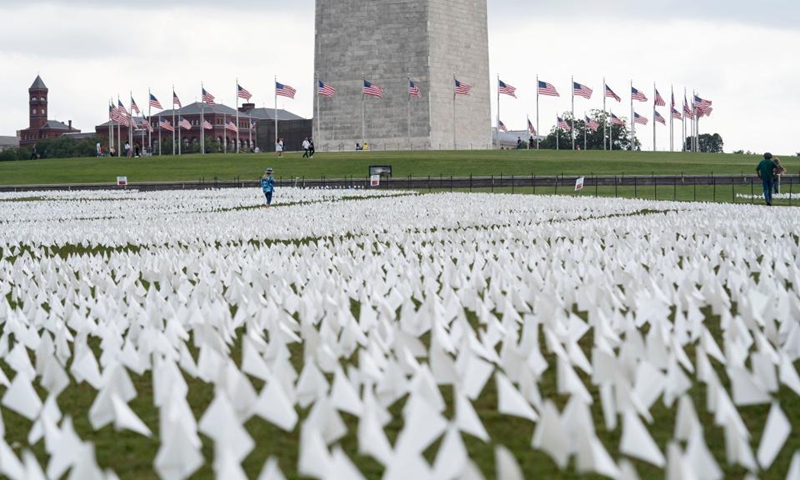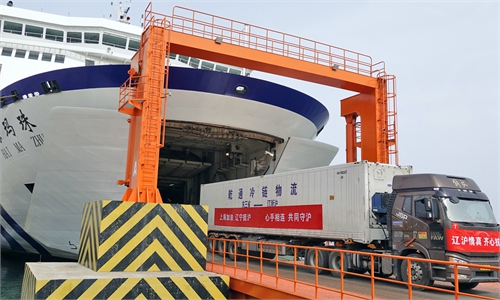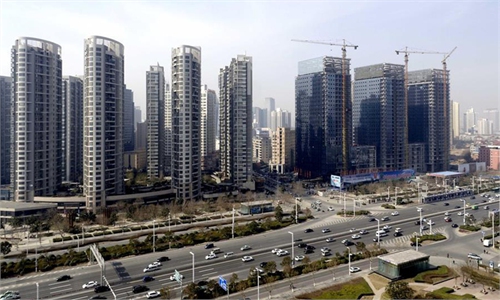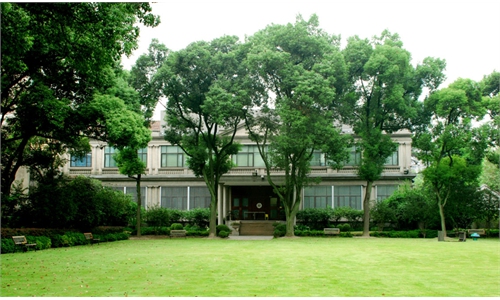US’ pullout of Shanghai consulate staff reveals who the world’s biggest Karen is

White flags are seen on the National Mall in Washington, D.C., the United States, on Sept. 16, 2021. More than 660,000 white flags were installed here to honor the lives lost to COVID-19 in the United States.Photo:Xinhua
Washington's recent order to withdraw all non-emergency staff from its Shanghai consulate has caused a sensation. In a statement on April 9, the US advised its citizens to reconsider travel to China due to "arbitrary enforcement of local laws and COVID-19-related restrictions." The statement also mentioned the risk of parents and children being separated when traveling to places in China like Shanghai. Three days later, another statement showed "authorized" departure had become "ordered."A spokesperson of the US State Department accused China's strict quarantine policy of running against the privilege foreign diplomats should enjoy. But in an opinion piece written for the Global Times, international affairs observer Mei Qichu mentioned that, according to sources, China has contacted the US many times about the latter's concerns on the COVID-related issues and assisted it during the city's lockdown. "If the US side wishes to punch a hole in China's COVID policy in order to get special treatment by dangling the 'departure' card, it is sitting on a very wrong assessment of reality," Mei wrote.
Lü Xiang, a research fellow at the Chinese Academy of Social Sciences, told the Global Times that the pullout of diplomatic staff usually takes place when where the embassy or consulate is located faces a significant and escalating danger, for instance, when it is believed a war or infectious disease has become uncontrollable.
The US was among the first countries to evacuate its embassy or consulate staff when the Russia-Ukraine conflict escalated in February and after the COVID-19 epidemic broke out in Wuhan in 2020 as well. However, in Lü's opinion, the withdrawal of diplomatic staff this time is "quite odd."
"Even though Shanghai is facing a quite strong wave of the COVID-19 epidemic, everything there is still under tight control," he said. "Therefore, I think the US' decision this time is more out of a political consideration than real danger."
Undoubtedly, the US is overreacting to the COVID-19 outbreak in Shanghai. And what's behind Washington's drama queen behavior is not so pretty.
Since the pandemic started to rage globally, Washington has witnessed how terribly it has dealt with the novel coronavirus compared to Beijing's overall excellent performance in fighting and preventing the epidemic. As a result, it started to nitpick China's anti-epidemic efforts in desperate exasperation.
"Trump attacked China in a shrewish way, calling the novel coronavirus the 'China virus.' And the Biden administration did it more 'cleverly': It tries to discredit China's achievements in fighting the epidemic by accusing China of arbitrary law enforcement to smear China," Lü noted.
This is also an attack on the Chinese government's ability to make decisions and govern the country. The measures China has been taking in the epidemic prevention and control are certainly not flawless; but just like the dynamic zero-COVID policy China has unswervingly adhered to, these measures are also optimized dynamically.
For example, in terms of the risk of parents and children being separated that the US is seemingly so concerned about, the Shanghai government has announced that parents would be allowed to stay with their COVID-positive children in mass-quarantine centers, even if the parents have not tested positive. Such a policy change was made public on April 6, three days before Washington's statement of "authorized departure."
The statements Washington made about the pullout of staff at its Shanghai consulate begin with, "The US has no higher priority than the safety and security of US citizens overseas." But in his article, Mei questioned whether the evacuation was to protect American citizens or to abandon them. He asked rhetorically, "If Foggy Bottom really thinks that the situation in Shanghai is so dire that their employees cannot survive in the city anymore, shouldn't they try everything to stay and help the US nationals?"
In recent years, US netizens started to use the slang term "Karen" to describe those who demand special treatment or exclusive privilege beyond what is normal or necessary. And judging from what is happening now, it is safe to say that the US government is the biggest Karen in the world. If Karens the people are infamous for asking "Can I speak to the manager?", then Karen the country will probably be remembered for the absurd reasons behind its "ordered departure."
The author is a reporter with the Global Times. opinion@globaltimes.com.cn



